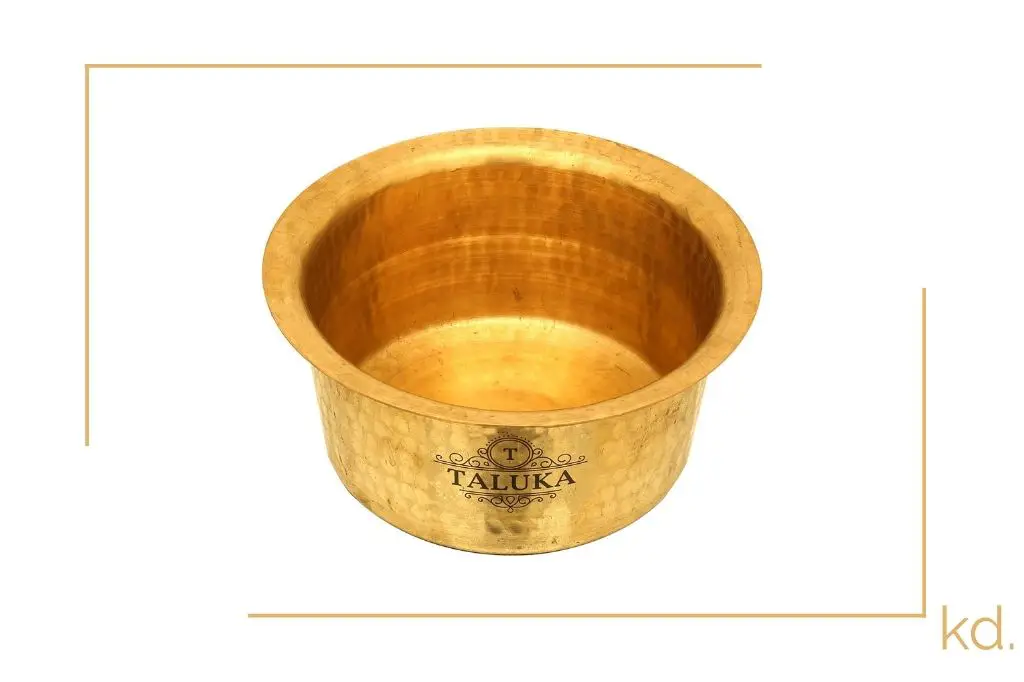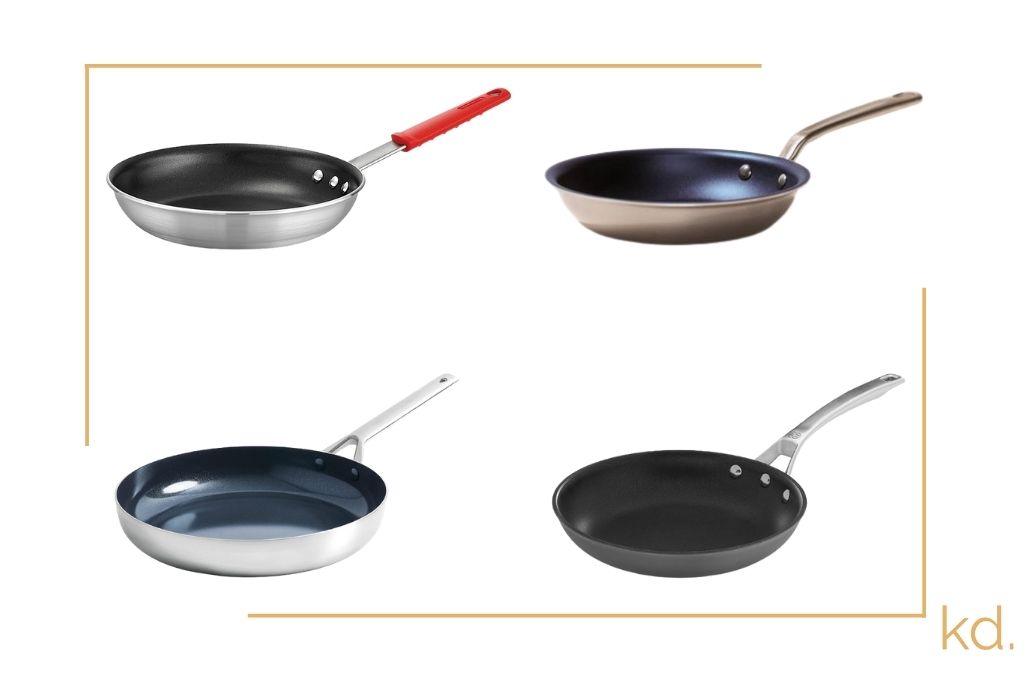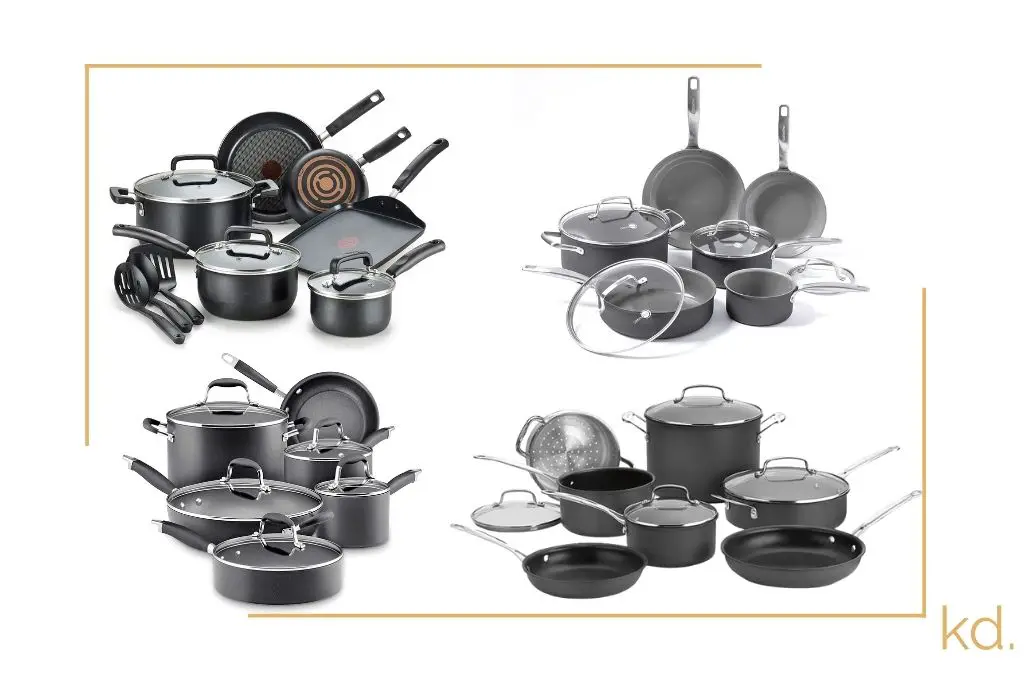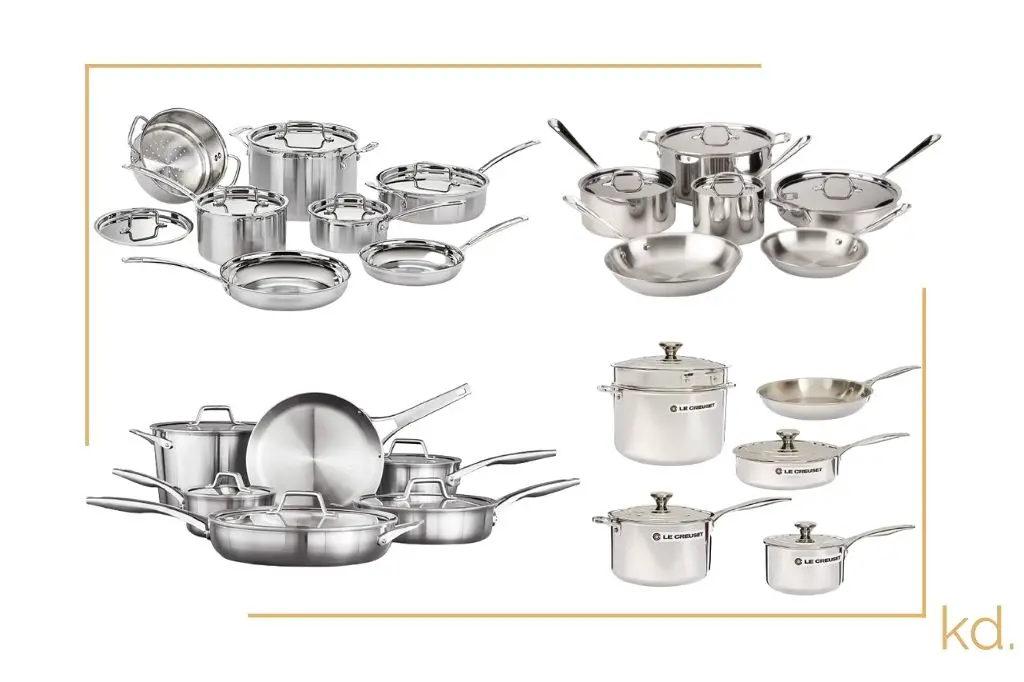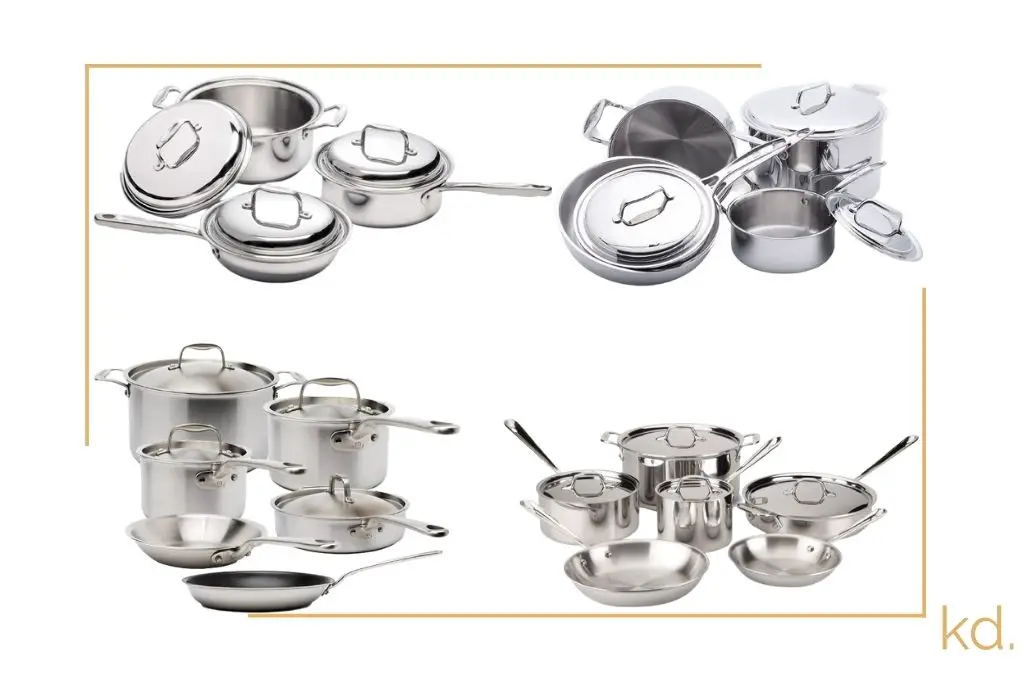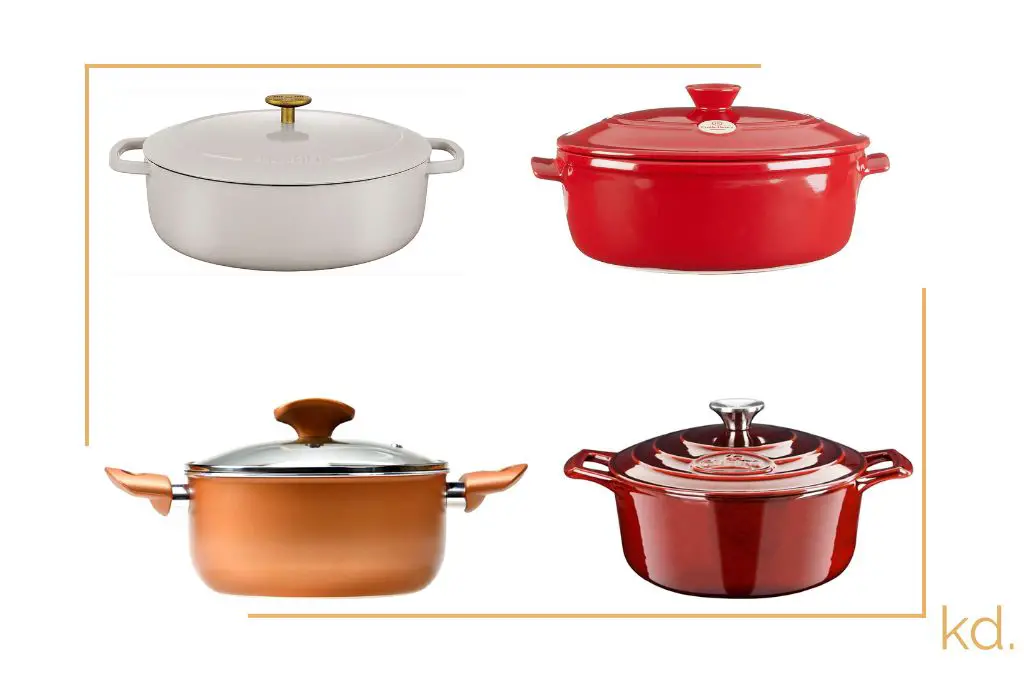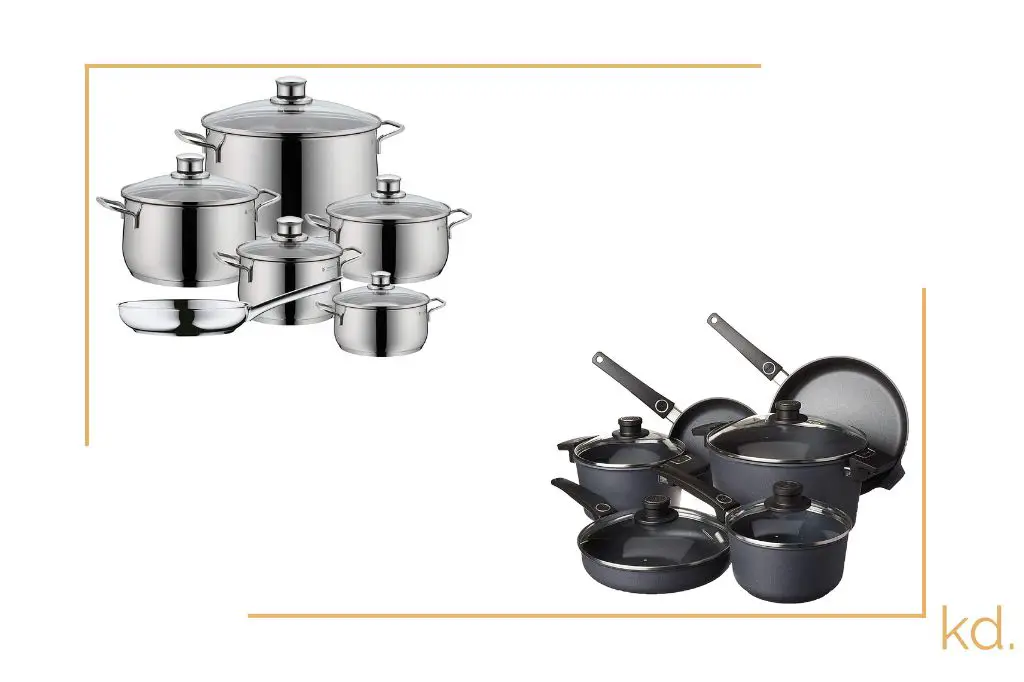Brass cookware has been around since the mid-1800s and still stands as one of the most popular metals used in home kitchens today. But brass cookware has its own pros and cons, so it’s important to make sure you know what you’re getting into before you rush out and buy some of this stuff.
In this article, we will discuss Brass Cookware material and take a closer look at the Brass Cookware’s Pros and Cons so you can determine if it’s right for your kitchen!
Use links below for easy navigation
What is Brass Cookware Material?
Brass Cookware Pros and Cons
Cooking With Brass Material
What to consider before buying Brass Cookware?
How to Clean Brass Cookware
What is Brass Cookware Material?

Brass is a material that’s been used in cookware for centuries. It’s made up of copper and zinc, and it’s considered a low-acid material. This means that it’s safe to use in the kitchen for cooking and baking, but it is not recommended for use in high-acid foods like tomatoes, citrus fruits, and other acidic ingredients.
Check out our article on Cast Aluminum Cookware
Brass Cookware Pros and Cons
Brass cookware’s popularity has only continued to grow as time goes on.
To decide whether brass cookware will be right for you, it’s important to learn about both the pros and cons of brass cookware, as well as how to care for it correctly in order to maintain its luster and longevity.
Let’s take a look at Brass Cookware Pros and Cons here:
Brass Cookware Pros
Brass cookware sets aren’t for everyone, but if you want to invest in quality cookware that will last you forever, then they may be the right choice for you. Let’s take a look at Brass Cookware Pros
Durability
Brass is a durable material that’s been used for cookware for hundreds of years. It’s a material that’s naturally antimicrobial, so it helps prevent bacteria from growing in your pan. You can be sure that your cookware will last a long time.
Related: Enameled Cast Iron Cookware Pros and Cons
Ease of Cleaning
Brass cookware is easy to clean, which means less time spent scrubbing and more time enjoying yourself at home with your loved ones.
Eco-friendly
Brass is an eco-friendly material that can be recycled when it’s no longer needed.
Improves Health
Brass contains many important trace minerals that are good for your health. The material inhibits bacterial growth, which means your food won’t have any flavor or smell when cooked in it.
Related: Marble cookware pros and cons
Cooks Evenly
Brass also improves the health of your food by making it easier to heat and stay hot. It absorbs and distributes heat evenly, which means that you can cook a whole range of foods without having to worry about any one ingredient being overcooked.
Adds Glamour
Brass cookware is a great way to add glamour to your home. It can also be used for cooking on the stovetop or in the oven. If you’re looking for an affordable way to upgrade your kitchen without spending a fortune, look no further than brass cookware.
Recycled Material
These pans are made from copper and nickel-plated copper, so they’re both durable and attractive. They’re also hygienic—and that’s because they’re made from recycled materials!
Affordable Prices
Brass cookware is a great option for those who want to save money while maintaining the look of their kitchen. Whether you want to invest in one piece or buy several different pieces, you can get quality products at affordable prices—and that’s what makes brass cookware so popular among consumers!
Check out our article on Granite Cookware Pros and Cons
Brass Cookware Cons
Brass is a great material for making cookware, but it has a few drawbacks.
Leach Toxic Metal
One of the biggest downsides of brass cookware is that it can leach toxic metals into food if you don’t handle it properly or cook it at very high heat.
React with Acidic Food
It can react with acidic foods like tomatoes and wine, which will cause the brass to develop a patina over time. This can be unsightly and also change the taste of whatever food you’re cooking.
Lose Shine
Brass cookware tends to tarnish and lose its shine over time. If you use your pots too often or keep them in direct sunlight, they will start to look dull and worn out.
Check out our article on Carbon Steel Cookware
Cooking With Brass Material
Brass is a relatively heavy metal that can be used for cooking foods such as rice and curry because of its ability to absorb heat. It’s great for cooking those dishes, but only if it’s used with tin-coated material. The tin coating helps it distribute that heat evenly and prevents the cookware from leeching any toxic material in the food.
The major downside to using brass cookware is that it tends to have a high thermal conductivity rate, meaning it transfers heat more quickly than other types of cookware. This makes it difficult to use with certain foods where you might want to slow down the cooking process or even let your food cool down before serving it (like risotto).
What to consider before buying Brass Cookware?
If you’re looking to buy brass cookware, there are a few factors you should consider before you make your purchase.
Lose its shine
Brass will tarnish over time due to oxidation. Over time, exposure to air will cause the surface of the pan or pot to lose its shine and become dull. Most brass cookware will lose its shine eventually; if you’re looking for something that will keep its luster for many years to come, consider investing in copper or stainless steel instead.
Conductivity
Brass conducts heat very well, so it’s great for cooking things like sauces or soups that need to be kept at a consistent temperature throughout their cooking time. It also requires less energy than many other types of materials used in kitchenware because it heats up faster than other materials would require more energy to reach the same temperature level as brass would reach in less time!
Maintenance
Brass naturally oxidizes over time and becomes darker and more tarnished looking. You can polish it back up with special polishing cloths to keep it looking shiny and new!
Reactive to acidic food
Brass is reactive. This means that if it comes into contact with acidic foods like tomatoes and lemons, it can discolor the metal. If you’re worried about this, then you should invest in stainless steel or any other material.
let’s take a look at different materials with their pros and cons in table below.
| Material | Pros | Cons |
|---|---|---|
| Stainless Steel | Durability, low reactivity, and low maintenance, uniform cooking. | Difficult to clean |
| Enameled Cast Iron | High heat retention, durable and corrosion-resistant. | Heavy and enamel can chip. |
| Cast Iron | Classic and durable, alternative to nonstick. | High-maintenance, susceptible to rust. |
| Copper | Versatile, durable, easy cleaning | Costly, heavy, and patina can develop over time. |
| Aluminum | Strong, durable, lightweight, and heats evenly. | Reactive. |
How to Clean Brass Cookware
Cleaning Brass Cookware is super easy. All you need is some dishwashing liquid and a scouring sponge or baking soda, and you’ll be able to get your cookware back to its beautiful original shine.
You can even use this method on copper pots and pans.
Here are the steps:
1) Mix the dishwashing liquid with water in a small bowl until it’s the consistency of thick paint.
2) Dip your scouring pad or sponge into the soapy water, then scrub your cookware with it. You can also use baking soda for this step instead of soap if you’d like!
3) Rinse off any leftover residue with hot water and dry with a clean towel or paper towel
Check out our article on Best Dishwasher Safe Cookware
Is Brass Cookware Safe?
Yes, brass is completely safe to use. In fact, brass has been used for cookware for centuries.
Why brass cookware is tin coated?
Brass cookware is usually tin coated and the tin coating prevents any toxic material from leeching into your food. The other function of tin is to make brass cookware corrosion-resistant, but it also makes it easier to clean, which is why you will see a lot of copper pots and pans with a thin layer of tin on them.
What is the other name for brass?
The other name for brass is Peetal (پیتل) in the Urdu language, this name is common in mostly Southeast Asia.
